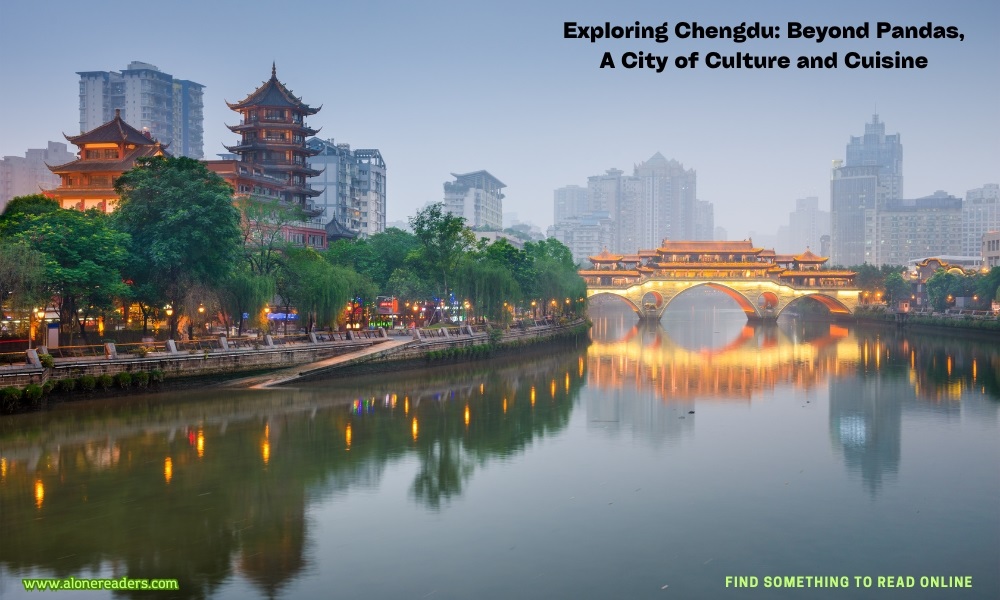
Chengdu, the capital of Sichuan Province in China, often draws travelers with the allure of its famous residents, the giant pandas. However, this vibrant city offers much more than just these adorable creatures. It is a place steeped in history, bustling with cultural richness, and brimming with a culinary heritage that rivals any global gourmet hotspot. In this blog post, we'll explore the myriad attractions of Chengdu, offering tips on how to get there, where to stay, what to eat, and the overall expenses you might encounter. Additionally, we'll cover some travel precautions to ensure a safe and enjoyable trip.
Chengdu is well-connected by air with the Chengdu Shuangliu International Airport, which services numerous international and domestic flights. For travelers within China, Chengdu is also accessible by high-speed trains and long-distance buses, making it a convenient hub for those exploring the broader Sichuan region.
Once in Chengdu, getting around is easy thanks to its efficient public transportation system. The city’s metro, buses, and affordable taxis make it convenient to navigate without personal transport. For a more local experience, renting a bike or using shared bikes can be a great way to see the city.
Chengdu offers a range of accommodations to suit all budgets. Hostels in the city center are available for as low as $10 USD per night, providing basic but comfortable amenities. Mid-range hotels typically cost between $30 to $50 USD per night, while luxury options start at $100 USD and can go upwards, offering top-notch amenities and services. Popular areas for travelers include the bustling Chunxi Road and the serene Jinli Ancient Street area.
Chengdu is a UNESCO City of Gastronomy, and for good reason. The city’s culinary scene is famous for its spicy Sichuan cuisine. A must-try is the hot pot, a communal eating experience where diners cook their choice of meats, vegetables, and noodles in a spicy broth. Expect to pay around $10 to $15 USD per person for a fulfilling hot pot meal.
Street food also abounds, with treats like spicy rabbit head (a local delicacy), dan dan noodles, and Sichuan dumplings being must-tries. For a more upscale dining experience, there are numerous restaurants in the city that offer sophisticated Sichuan dishes in a more refined setting, with meals ranging from $20 to $50 USD per person.
Beyond pandas, Chengdu is rich with historical and cultural sites. The Wuhou Shrine, dedicated to the Three Kingdoms era, and the serene Qingyang Palace, a large Taoist temple, are significant cultural landmarks. For a touch of nature, the Chengdu Research Base of Giant Panda Breeding is a must-visit, not just to see pandas but to explore its expansive parks and lakes.
Other attractions include the Sichuan Museum, Jinli Ancient Street for a taste of old Chengdu, and the vibrant Sichuan opera performances that showcase the region’s unique face-changing art form.
While Chengdu is generally safe for tourists, standard travel precautions apply. Be mindful of your belongings in crowded areas, and it’s advisable to have travel insurance. Also, Chengdu's cuisine is notably spicy, so those with sensitive stomachs should proceed with caution and communicate dietary preferences clearly.
To ensure a smooth trip, it may be useful to download translation apps or have a phrasebook if you’re not familiar with Mandarin, as English is not widely spoken outside of tourist areas and high-end hotels.
Conclusion
Chengdu, a city that transcends its panda-related fame, offers a rich tapestry of history, culture, and culinary delights. Whether you're strolling through its bustling streets, savoring the bold flavors of Sichuan cuisine, or exploring its historical sites, Chengdu promises an enchanting and unforgettable travel experience. With careful planning and an adventurous spirit, your journey to this vibrant Chinese city will be filled with discovery and delight.